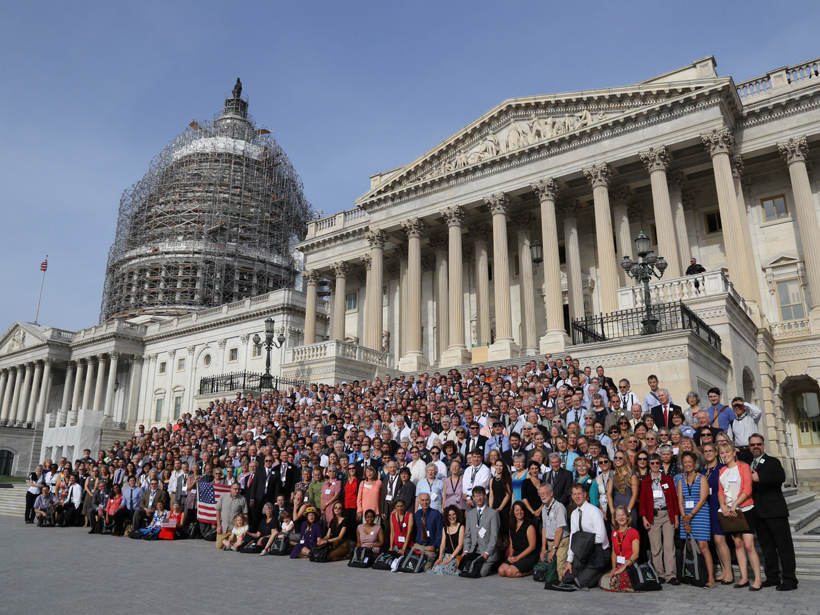Just as citizens are increasingly participating in the scientific process through numerous citizen science programs, scientists are increasingly exercising their rights as citizens in the political process. This trend is most notable in the effort to develop the political will to prevent climate change. Since climate change is a global problem arising from the actions of almost everyone, global political solutions are required to prevent it.
A large number of AGU members, motivated by the energy use implications of their climate research, are actively advocating local, state, national and international commitments to reduce emissions of the greenhouse gases that their science has concluded is driving climate change. Climate scientists are not only speaking to the public about the science of climate change, but also are calling for policies designed to reduce use of fossil fuel, the primary anthropogenic source of greenhouse gas emissions.
For example, well known climate scientists James Hansen and Katharine Hayhoe serve on the Board of Citizens’ Climate Lobby (CCL), which exists “to create the political will for climate solutions by enabling individual breakthroughs in the exercise of personal and political power.” They and numerous other AGU members (including me) volunteer with CCL to advocate a steadily increasing national revenue-neutral carbon fee and dividend with border adjustments to protect trade and induce other nations to put a price on fossil carbon too. To build the political will for this solution, we give public presentations on both climate science and climate change solutions, give radio and television interviews, write blogs, columns and letters in various media, and meet with members of the U.S. Congress.
Since climate change is a global problem arising from the actions of almost everyone, global political solutions are required to prevent it.
Such advocacy is not for the faint of heart. The integrity of climate scientists in general has been questioned, and some have even received death threats. As Stephen Schneider articulated so well in his 2009 book, climate science is a full contact sport.
Yet the effort of the 34,000 CCL members and members of other complementary organizations such as AGU has led to public acknowledgment of the human role in climate change and the importance of preventing it amongst both Republican and Democratic members of Congress. A bipartisan Climate Solutions Caucus has been established in the House of Representatives, and a House Resolution declaring such has 13 Republican sponsors. More importantly, the Paris Climate Conference last December led to pledges from almost all nations to substantially reduce greenhouse has emissions.
As an Editor-in-Chief for an AGU journal, I am particularly mindful of the need to distinguish between science and policy. Although I am sufficiently convinced of the human role in climate change to advocate policy, as an Editor I take care to apply the same formal review process to all manuscripts, focusing on the evidence that supports the science.
While some might be concerned about potential loss of scientific objectivity from such advocacy, such concerns are only relevant before the major science issues have been resolved. While important details necessary for adaptation remain, it is time to make informed decisions about how to most effectively and economically limit the accumulation of greenhouse gases in the atmosphere. AGU scientists can play important roles as citizens of their respective countries.
—Steven J. Ghan, Editor-in-Chief, Journal of Geophysical Research: Atmospheres; email: [email protected]
Citation:
Ghan, S. J. (2016), Climate scientists as activists, Eos, 97, https://doi.org/10.1029/2018EO053001. Published on 02 June 2016.
Text © 2016. The authors. CC BY-NC-ND 3.0
Except where otherwise noted, images are subject to copyright. Any reuse without express permission from the copyright owner is prohibited.

